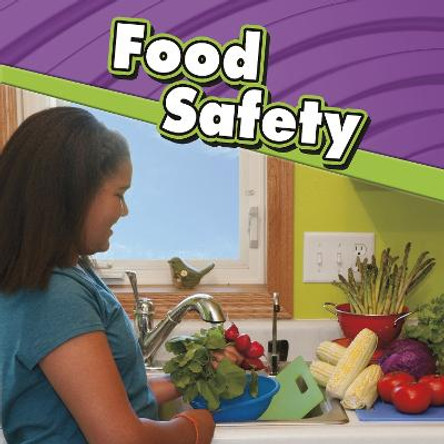Description
Food Safety after Fukushima examines the process by which notions about what is safe to eat were formulated after the nuclear meltdown. Its central argument is that as citizens informed themselves about potential risks, they also became savvier in their assessment of the government's handling of the crisis. The author terms this "Scientific Citizenship," and he shows that the acquisition of scientific knowledge on the part of citizens resulted in a transformed relationship between individuals and the state. Groups of citizens turned to existing and newly formed organizations where food was sourced from areas far away from the nuclear accident or screened to stricter standards than those required by the state. These organizations enabled citizens to exchange information about the disaster, meet food producers, and work to establish networks of trust where food they considered safe could circulate.
Based on extensive fieldwork and interviews with citizens groups, mothers' associations, farmers, government officials, and retailers, Food Safety after Fukushima reflects on how social relations were affected by the accident. The author vividly depicts an environment where trust between food producers and consumers had been shaken, where people felt uneasy about their food choices and the consequences they might have for their children, and where farmers were forced to deal with the consequences of pollution that was not of their making. Most poignantly, the book conveys the heavy burden now attached to the name "Fukushima" in the popular imagination and explores efforts to resurrect it.
About the Author
Nicolas Sternsdorff-Cisterna is assistant professor of anthropology at Southern Methodist University.
Reviews
[T]his book is a beautifully written and easy to read account of the challenges Japanese society has faced by the radioactive contamination of food in the first three years after the Fukushima nuclear disaster. Nicolas Sternsdorff-Cisterna provides manifold insights into the perspectives of concerned consumers and farmers in post-Fukushima Japan, and introduces their strategies for consuming and producing safe food on an everyday base. Scholars and students of Japan and food safety, as well as the general public will benefit from the many examples and rich descriptions of individuals' practices in a post-disaster society. Sternsdorff-Cisterna's book sensitively depicts and brilliantly analyzes the precariousness of life in Japan after the dangerous 2011 nuclear plant accident. His concept of scientific citizenship is a major contribution to formulating the social relations, political dynamics, and cultural categories of risk and safety that emerge following the mega-disasters that we humans bring upon ourselves. Food Safety after Fukushima reveals the fallout of Japan's nuclear meltdown to have been not only radioactive but also deeply social. In Tokyo, fear of radiation's indiscernible threat-and people's skepticism of the state's ability to issue reliable safety assurances-eroded longstanding trust relations between farmers and food shoppers and led women to re-write the rules of "good" mothering. With sensitivity and great insight, Nicolas Sternsdorff-Cisterna details how residents, armed with Geiger counters and newfound political purpose, generate and circulate knowledge about radiation-enacting "scientific citizenship"-to rebuild the social relations that constitute food safety.
Book Information
ISBN 9780824884321
Author Nicolas Sternsdorff-Cisterna
Format Paperback
Page Count 216
Imprint University of Hawai'i Press
Publisher University of Hawai'i Press
Weight(grams) 320g






